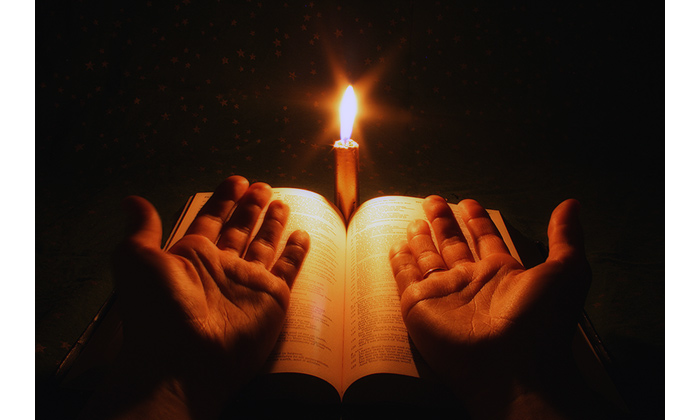Love of God is not something that can be taught. We did not learn from someone else how to rejoice in light or want to live, or to love our parents or guardians. It is the same – perhaps even more so – with our love for God: it does not come by another’s teaching. As soon as the living creature (that is, man) comes to be, a power of reason is implanted in us like a seed, containing with it the ability and the need to love. When the school of God’s law admits this power of reason, it cultivates it diligently, skillfully nurtures it, and with God’s help brings it to perfection.
For this reason, as by God’s gift, I find you with the zeal necessary to attain this end, and you on your part help me with your prayers. I will try to fan into flame the spark of divine love that is hidden within you, as far as I am able through the power of the Holy Spirit.
First, let me say that we have already received from God the ability to fulfill all his commands. We have then no reason to resent them, as if something beyond our capacity were being asked of us. We have no reason either to be angry, as if we had to pay back more than we had received. When we use this ability in a right and fitting way, we lead a life of virtue and holiness. But if we misuse it, we fall into sin.
This is the definition of sin: the misuse of powers given us by God for doing good, a use contrary to God’s commandments. On the other hand, the virtue that God asks of us is the use of the same powers based on a good conscience in accordance with God’s command.
Since this is so, we can say the same about love. Since we received a command to love God, we possess from the first moment of our existence an innate power and ability to love. The proof of this is not to be sought outside ourselves, but each one can learn this from himself and in himself. It is natural for us to want things that are good and pleasing to the eye, even though at first different things seem beautiful and good to different people. In the same way, we love what is related to us or near to us, though we have not been taught to do so, and we spontaneously feel well disposed to our benefactors.
What, I ask, is more wonderful than the beauty of God? What thought is more pleasing and satisfying than God’s majesty? What desire is as urgent and overpowering as the desire implanted by God in a soul that is completely purified of sin and cries out in its love: I am wounded by love? The radiance of the divine beauty is altogether beyond the power of words to describe.
[Article excerpted from the Longer Rules of Basil the Great]
Top image credit: Hands open in prayer before an open bible and candle, from Bigstock.com, © by Kalina Vova, stock photo ID: 19540097. Used with permission.
Basil of Caesarea, also known as Basil the Great, was born in Cappadocia (now present day Turkey) in 330 AD. He studied at Constantinople and then at Athens (351-356) where two of his classmates were Gregory of Nazianzus (who became a close friend) and the future Emperor Julian the Apostate. Basil wanted to be a lawyer and orator, but his sister Macrina persuaded him to seek the monastic life instead. After making a tour of the monasteries of Egypt in 357, he founded a monastic settlement near his home where he lived for five years. Basil established guidelines for monastic life which focus on community life, liturgical prayer, and manual labor. Basil expressed a preference for the communal life of the monastery over the solitary life of the hermit, arguing that the Christian life of mutual love and service is communal by its nature. His Rules became the standard for monastic life in the East. Together with Pachomius he is remembered as a father of communal monasticism in Eastern Christianity.
Basil returned to public life at the call of his bishop, Eusebius of Caesarea, to join in the battle against Arianism. He was ordained priest and then succeeded Eusebius as bishop in 370 AD. In addition to his work as a theologian and defender of the faith, Basil was known for his care of the poor and underprivileged. In 367-8, when Cappadocia suffered a severe and widespread famine, Basil sold his family’s extensive land holdings in order to buy food for the starving, persuading many others to follow his example, and putting on an apron to work in the soup kitchen himself. In this crisis, he refused to allow any distinction to be made between Jew and Christian, saying that the digestive systems of the two are indistinguishable. He also built a hospital for the care of the sick, housing for the poor and a training school to learn skilled trades, and a hospice for travellers.



